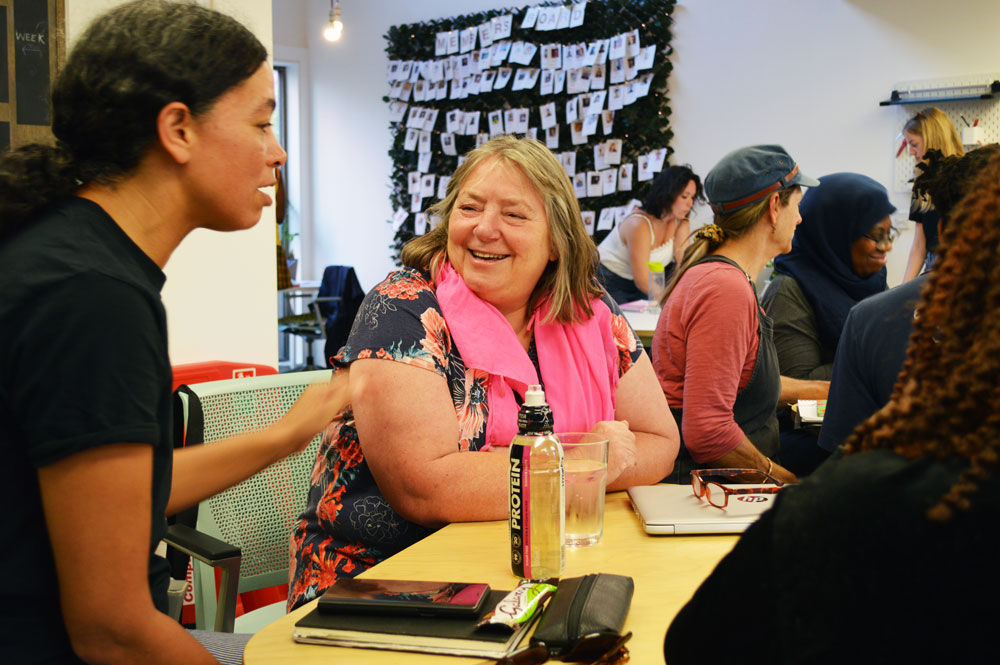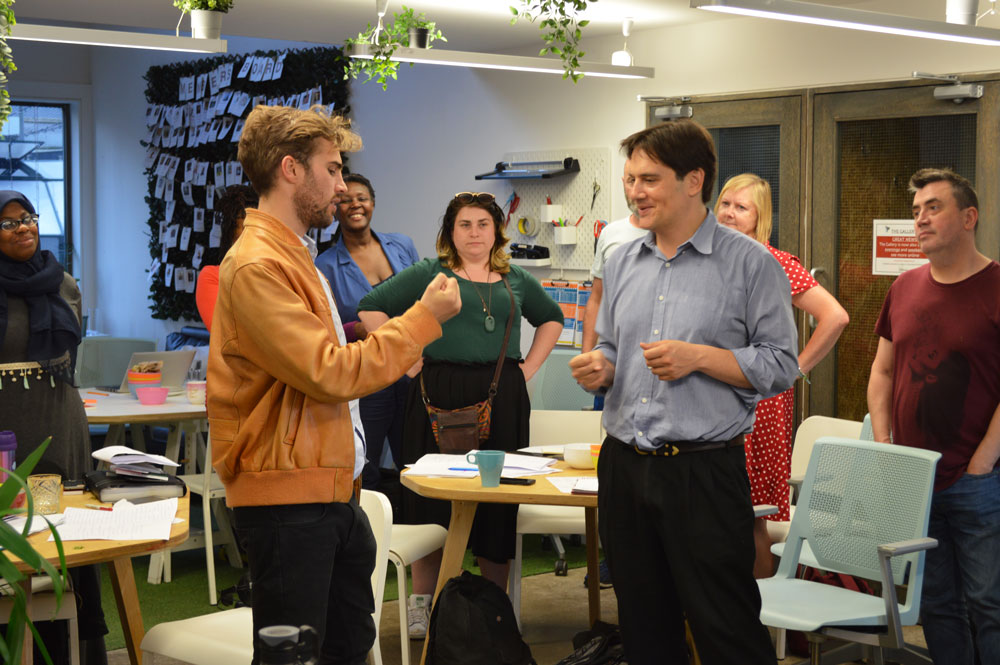Five tips on starting a social enterprise, from Igniting Change in Lambeth
11 Jul 2019
Our new programme, Igniting Change in Lambeth, is in full swing. The six-session learning programme supports individuals to develop their ideas for social enterprises tackling issues in Lambeth, South London.
Henna, SSE Central’s communications coordinator, went along to Impact Brixton to observe the second session of Igniting Change in Lambeth. Discover what she learnt during the evening…

Diverse group = diverse ideas
Coming together with other people who are trying to start something up is hugely rewarding – especially if they come with different perspectives. A diverse group brings a range of experiences to relate to and learn from. And we believe that understanding diverse perspectives is essential if you want to create change. Social problems are shaped by a broad range of people, so it’s helpful to connect with a broad range of people if you want to try to unpick any issue.
Lambeth is a diverse borough with a range of issues at the heart of the community. What better place to hold this session than Brixton, the borough’s liveliest neighborhood. Our venue, Impact Brixton, is found towards the back of Pop Brixton. Pop Brixton is itself a social enterprise: an event venue with a number of food vendors, a community radio station, a clothes repair shop and much more. A perfect fit for our programme.
Twenty grassroots social entrepreneurs with a passion to change their local community for the better came to the evening session. The students come from all walks of life, with different cultural backgrounds, careers, and experiences of social impact and entrepreneurship. Every idea in the room was different and unique, reflecting the diversity of Lambeth itself.
But, we also learnt that…
It’s okay to not have a fully grown idea
Igniting Change in Lambeth is a pre-start-up programme. We wanted to give people the chance to observe their community and society, and envision something better through our workshops. Most of the group are budding social entrepreneurs with little to no experience of the sector. That’s why it’s okay for them not to have a fully grown idea.
“The programme brings together social entrepreneurs with a shared energy for real social and environmental change. Their dedication to developing deep understanding and empathy for the problem they are trying to improve is truly inspiring.” – Beez, SSE fellow.
By the second session most had an idea to work from, however small or undeveloped. One person in the group has experience growing vegetables at home and now wants to translate that to a community garden. Another wants to introduce young people to geoscience. Others know they want to create some form of social impact and change, but are researching to figure out an idea. Our workshops are a space for these individuals to explore their ideas with each other through peer support and action learning.
And even if you do have a fully grown idea…
Explaining it is hard to do in one sentence
Learning manager, Anna, kicked off the session asking everyone to explain their idea or what they want to achieve in one sentence. It’s a lot harder than it sounds! Some people know what their idea is but packing it into just one sentence can be tricky.
Being able to ‘pitch’ your idea in a few words is a valuable skill to have. It will allow you to clearly identify and explain what your project will do, who it will help and why it’s important. Over the next few weeks, our 20 students will try to refine their pitch.
Learn more in our online guide: Communicating an idea
It’s important to think about who your user is
SSE fellow, Beez, led a workshop about the “user journey”: the journey someone will take, when they interact with your service or product. He first invited the group to think about who their service-user would be. Why is this important? Because knowing the target audience well will allow them to tailor their project to specific needs. Figuring out exactly what their beneficiaries need and want, without basing ideas on their own assumptions, is crucial.
The user journey is critical. What events lead an individual to use your product or service? This could be anything from a new digital community magazine, to geoscience workshops for children and young adults!
How much of myself am I putting into the journey?
Only two out of 20 people know the rules of ‘rock, paper scissors’*
*not a real statistic. But the room of 20 social entrepreneurs and SSE staff didn’t have the easiest of times trying to explain ‘rock, paper, scissors’ to the group. Beez used the game to close off his session, encouraging the group to split into pairs to play the game. Each winner continued to play against other winners until we were left with two people each with their own group of cheerleaders for the last game. A great way to end the evening’s workshops with spirits high and ready to implement all they’d learnt about user profiles and journeys.
(Okay, this one isn’t really a tip – so check out the resources below to keep learning!)

Learn more about how to start up a social enterprise
Check out our online guides:
- How to start a social enterprise in 10 steps
- Researching and piloting an idea
- Finding money to start a social enterprise
Register your interest in this course:
- The Lloyds Bank and Bank of Scotland Social Entrepreneurs Start Up Programme – offering a £1,000, learning programme and community of support
